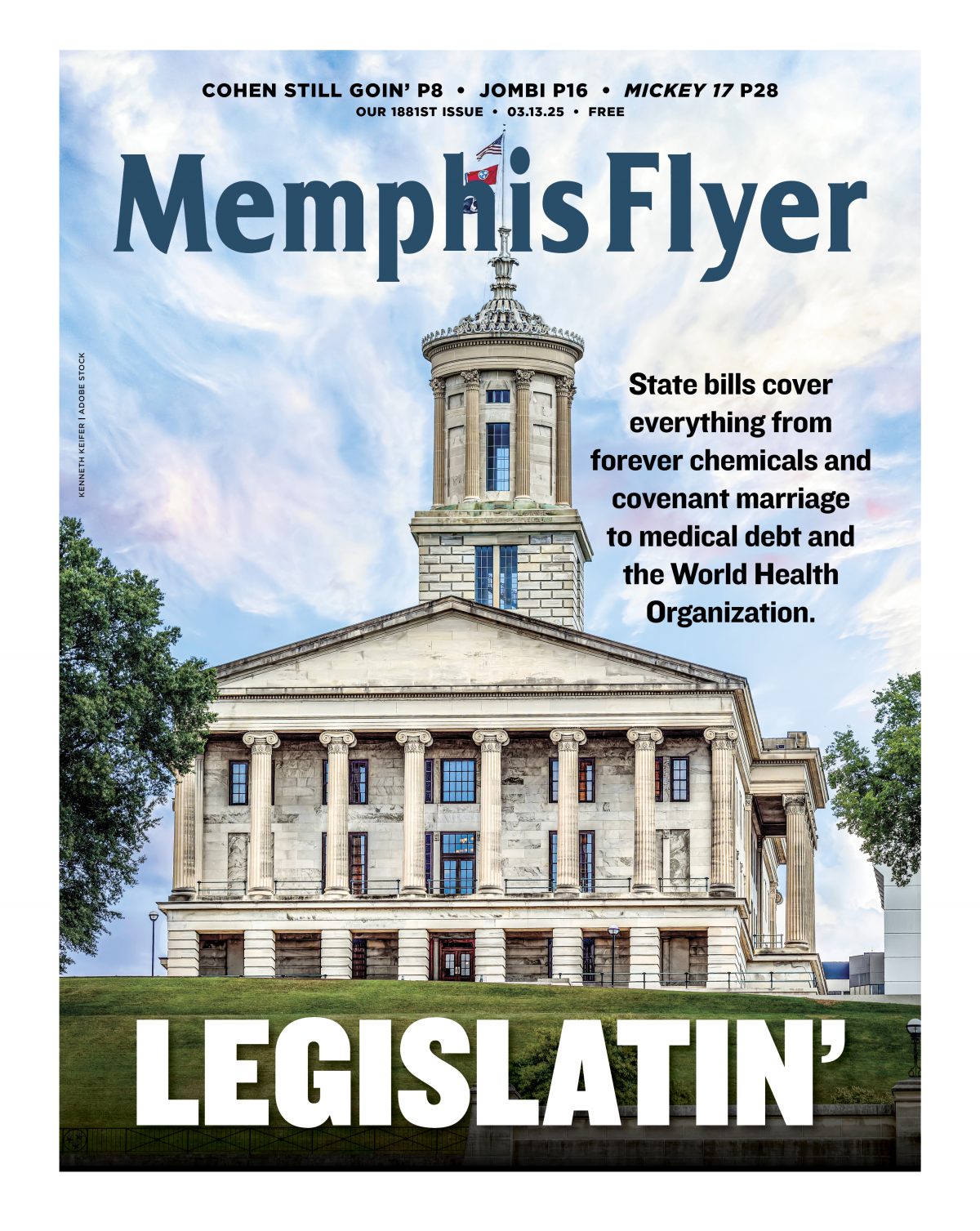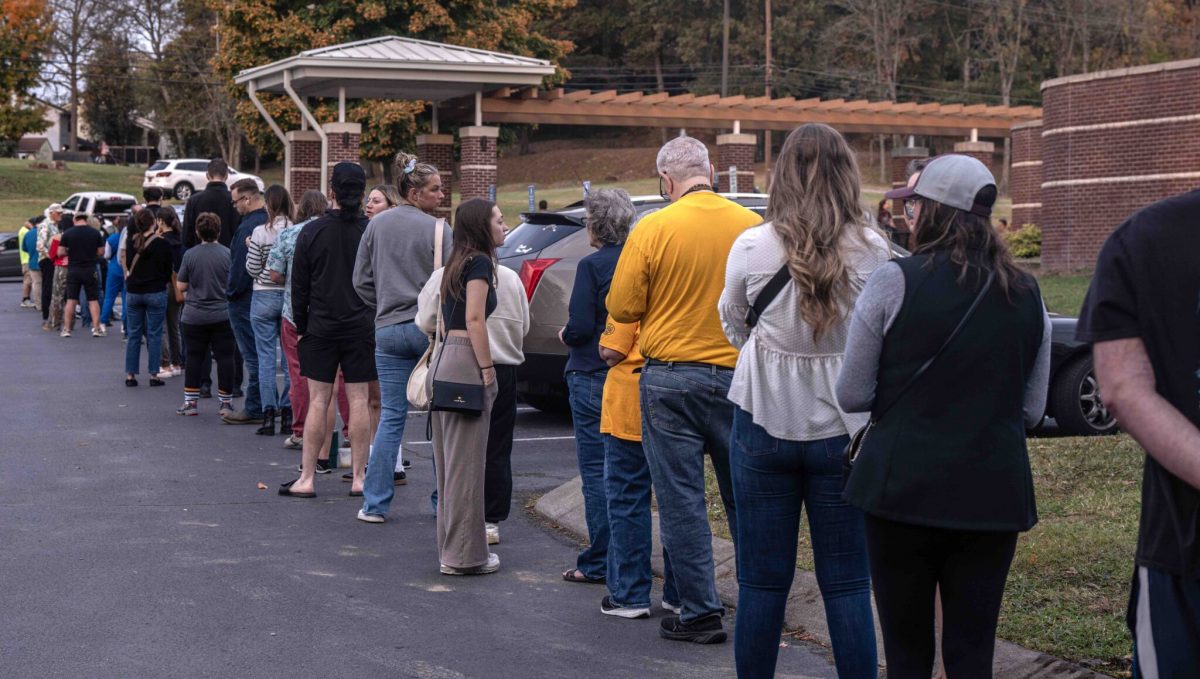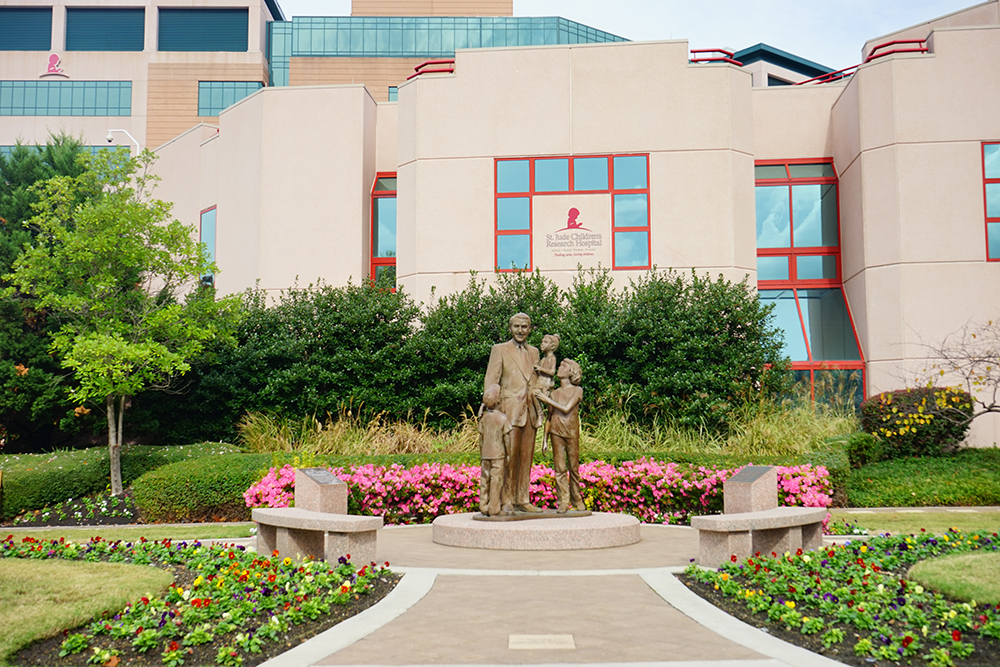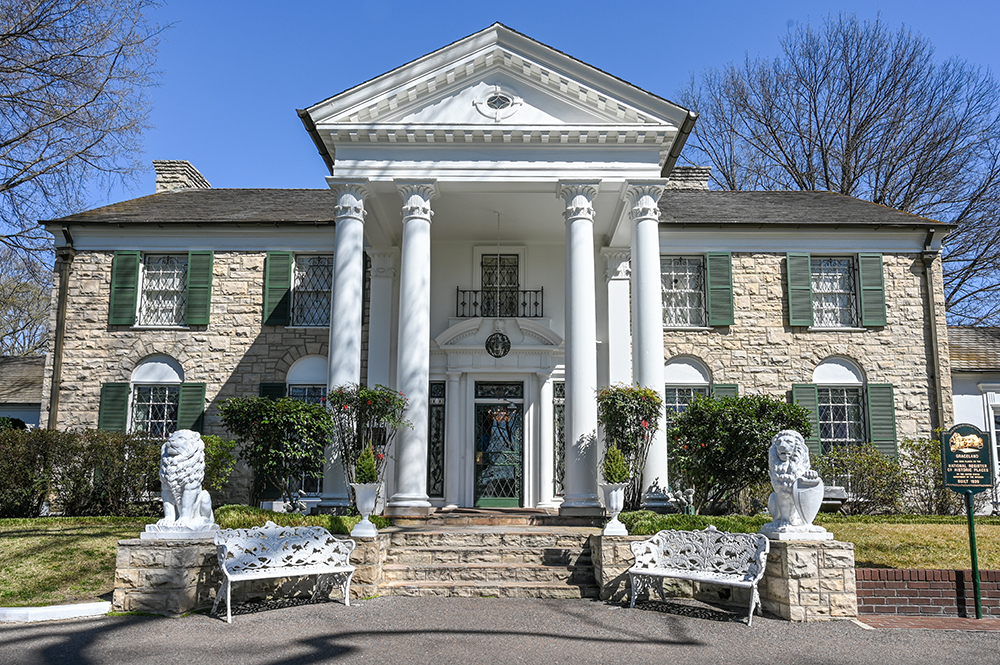Chris McCoy gives you the rundown on what’s going on in Nashville as the new legislative session gets rolling. Plus, Mickey 17!


Chris McCoy gives you the rundown on what’s going on in Nashville as the new legislative session gets rolling. Plus, Mickey 17!

To remind the faithful readers of this space: In our year-end issue, we offered forecasts about the shape of things to come in the political arena.
One circumstance noted for the record was the fact that both of Tennessee’s incumbent U.S. senators — Marsha Blackburn and Bill Hagerty — would strongly consider running for governor in 2026.
That is what our pipeline said, and that is what we reported, even though it seemed passing strange, even to us. Why? Because the customary rites of passage flow in the opposite direction — with the gubernatorial office more often serving as a springboard for Senate, than vice versa.
That is definitely the pattern in our neighboring state of Arkansas, where such eminent recent members of the Senate as Dale Bumpers and David Pryor (both now deceased) served what amounted to apprenticeships as governor before going on to become senators.
To be sure, ambitions may figure differently in the Land of Opportunity than in the Volunteer State, but Lamar Alexander ran first for governor and then for senator. And one recalls the unhappy, arguably tragic fate of Democrat Frank Clement, who served several terms as the state’s governor before meeting his Waterloo in two successive failed runs for the Senate.
(Interestingly, Clement’s second and final failed try, in 1966, resulted in the election to the Senate of Republican Howard Baker — the forerunner of what, in the course of time, would become the wall-to-wall ubiquity of GOP state officials.)
In any case, both of Tennessee’s current Republican senators have floated unmistakable trial balloons regarding gubernatorial races in 2026, and both seem dead serious. It may be far-fetched to imagine a competitive race between the two, but, my, wouldn’t that be an attention-grabber!
More likely, forces in the Republican Establishment — most notably Donald Trump — would probably dictate the choice of one over the other. (Either could make a plausible claim of loyalty to the president and to the MAGA agenda.)
And, given the high probability of success for the ultimate GOP nominee, one can imagine a domino-like chain reaction of opportunities opening up for other upwardly mobile Tennessee Republicans.
If Hagerty makes a governor’s race, he could either run for both governor and re-election as senator simultaneously, or go ahead and shed his Senate seat (his term would expire in 2026, anyhow) while campaigning for governor. In that latter eventuality, a race for his departed seat would occur in 2026, with a high probability that 8th District Congressman David Kustoff would be a candidate.
Kustoff’s seat, in turn, might then well be targeted by, say, the preternaturally ambitious state Senator Brent Taylor, in which case his seat would open as well, with possible aspirants for it including former city councilmen Kemp Conrad and Frank Colvett, and maybe even state Rep. Mark White. (A White race would create yet another vacancy and another domino.)
If Blackburn runs and wins, she would keep her Senate seat until being sworn in, in which case either she or a lame-duck Bill Lee would appoint a temporary Senate successor, with a special election for a permanent senator to be held in 2028.
The same sort of sequence as mentioned above for a Hagerty win might then occur, involving the same or a similar cast of characters, though everything would happen at a later remove in time.
Got all that straight, gentle reader? Probably not, though it could be worse. There are other permutations and possible complications we’re sparing you from.
The bottom line is that some shock and awe seems certain for the state’s political calendar in 2026, along with a potentially dizzy round of dominoes.
And who knows? Maybe some as yet unknown Democrat comes out of nowhere to spoil the party at some point along the succession line.

Still want to watch PornHub (and other major porn sites) in Tennessee without an ID check? Here’s how: Download a VPN. (We’ll give you some how-to resources below.)
Okay, a VPN may sound a little too complicated or somehow dark-web-ish or law-breaking or something. You can search for porn on social sites like X or Reddit. Easy peasy. (We’ll give you an example of that below, too.)
You probably already know that PornHub and other major porn sites have gone dark in Tennessee. Go to the PornHub site now and you’ll get only this:

That’s Brazzers star Cherie Deville. The actor is also an adult film advocate and ambassador for others in the industry. In the video, Deville explains why PornHub completely disabled access to its site in Tennessee.
”While safety and compliance are at the forefront of our mission, giving your ID card every time you want to visit an adult platform is not the most effective solution for protecting our users, and in fact, will put children and your privacy at risk,” Deville explains in the video.
“In addition, mandating age verification without proper enforcement gives platforms the opportunity to choose whether or not to comply. As we’ve seen in other states, this just drives traffic to sites with far fewer safety measures in place. Very few sites are able to compare to the robust Trust and Safety measures we currently have in place.”
Deville says the best method to protect children from online pornography is to identify users by their devices and limit access on them. So, instead of PornHub shutting off the entire state of Tennessee, parents could restrict access to the site (and others like it) themselves on their children’s phones, computers, and tablets.
Chief United States District Judge Sheryl Lipman in Memphis agrees. (Or, at least she did in a December 30th ruling.)

“Ultimately, (Tennessee’s new porn law’s) most glaring flaw is that it is not the least restrictive means of advancing Tennessee’s interest in protecting minors from pornography,” Lipman said. “If there is a less restrictive alternative that would serve the state’s purpose, the state ’must use that alternative.’ [Here, she was quoting from an earlier decision from a lawsuit involving Playboy magazine.]
“Blocking and filtering controls on individual devices are both more effective and less restrictive than the state’s suppression of speech at the source. These applications are more comprehensive than geography-based age restrictions because they prevent children from accessing harmful content no matter where they go, and they cannot be circumvented with a VPN.”
So the GOP-run Tennessee General Assembly’s law is not the most effective way to protect minors from online porn, say a federal judge and an adult film star. Also, Lipman added in her opinion that VPNs are effective ways to skirt Tennessee’s new law and called them ”available, affordable, and effective.”
This technology is available, affordable, and effective.”
Chief United States District Judge Sheryl Lipman
“These programs often come pre-installed on computers and phones, and some are free to download,” Lipman said of VPNs. “Unlike age-verification requirements at the source, parental controls on a device are highly customizable based on the user’s age and sensitivity — they would not prevent adults from accessing protected adult content, but they would prevent minors from accessing it. This technology is available, affordable, and effective.”
Now, we’re back to VPNs, or “virtual private networks.” So, VPNs encrypt your internet connection and route it through servers in other physical places. Use a VPN, set it up as you like, and websites won’t know you’re in Tennessee (unless you tell them for some reason).
I’m no VPN expert. But the folks at VPNPro definitely are. They have a full run-down on how to get around Tennessee’s new law with a VPN and unlock those website without an ID. Their in-depth process and VPN recommendations are here.
In addition to the VPN work-around, social media is filled with adult content on sites don’t have to collect IDs because Tennessee’s law says more than a third of a website’s content must be porn to trigger the ID law. That being the case, porn that is on, say, X, is still readily available. As of Thursday morning, users could still find adult videos like this one from Deville herself.


No, we’re not going to give you links.
Take note: The U.S. Supreme Court is set to take up a case about a similar law from Texas next week. If it rules the Texas ban unconstitutional, PornHub could again be open for business in Tennessee without requiring an ID.

A federal appeals panel on Tuesday heard arguments in a case to determine the future of Tennessee voter registration policies that — by some estimates — have disenfranchised half a million state residents with past felony convictions.
A class action lawsuit, filed in 2020 by the Tennessee State Conference of the NAACP and five voters, accuses state officials of establishing byzantine, inequitable, and onerous procedures that effectively prevent qualified voters with past convictions from casting a ballot in violation of the National Voter Registration Act (NVRA).
A federal judge in Nashville temporarily blocked the state rules in April, but the state successfully appealed to keep them in place ahead of the November 2024 elections while litigation continued.
On Tuesday, an attorney representing the Tennessee attorney general defended state voting right restoration rules before a three-judge panel of the 6th U.S. Circuit Court of Appeals as a lawful exercise of state power and argued the NAACP lacked the legal right to challenge the rules on behalf of voters.
Restoring voting rights after a felony is rare in Tennessee. This year, the process got harder.
“The NVRA ensures eligible applicants can register to vote but it also exists to protect the integrity of the election process,” said Philip Hammersley, assistant solicitor general. “Tennessee’s [restoration] policy furthers both aims by providing election officials what they need to distinguish between felons who are eligible to vote and those who are not.”
Hammersley focused much of the state’s arguments in disputing the NAACP had legal standing to file suit at all.
The Tennessee civil rights organization, Hammersley argued, was too “attenuated” — or removed from direct harm by state rules that apply to individuals seeking to restore their voting rights — to have standing to sue.
“NAACP would have to show [state] policy coerced or forced individuals to go to the NAACP and enlist their help, and that is simply not what is happening here,” Hammersley said. “There are many different voluntary steps that those individuals take before the NAACP gets involved.”
Danielle Lang, representing the NAACP, disagreed.
U.S. Appeals Court stops felon voter restoration change from going through
“Tennessee NAACP is in the business of registering voters,” she said. “It has been in the business of registering voters for all of its storied history, and it will continue to be in the business of registering voters regardless of Tennessee’s actions.
“And when you make it harder to register voters, you make it harder for groups that are in the business of registering voters,” said Lang, senior director of voting rights for the Campaign Legal Center.
Under state law, individuals who have completed their sentences for felony convictions have pathways to regain their voting rights.
They can either obtain a pardon from the governor or petition a judge. The process also requires proof that all court fines and fees have been paid. Fewer than 1 percent of applicants succeed in obtaining court relief and fewer than 3 percent obtain clemency.
In addition, applicants have to legally regain their ability to carry a weapon.
Overall, nearly 10 percent of the Tennessee electorate — 470,000 people — have lost their right to vote due to past felony convictions, including one in five Black residents of voting age.
Tennessee Lookout is part of States Newsroom, a nonprofit news network supported by grants and a coalition of donors as a 501c(3) public charity. Tennessee Lookout maintains editorial independence. Contact Editor Holly McCall for questions: info@tennesseelookout.com.

A good fact is hard to find, especially in these truth-fluid times. But it’s nice to know there are a few solid ones you can stand upon.
That was my thinking as I pitched this story to our editor, Shara Clark. Then I started compiling these facts and realized even some of them can be fluid. A classic example: Which was the first rock-and-roll song, “Rocket 88” or “That’s All Right”? Either one still makes Memphis the “birthplace of rock-and-roll,” though. Right?
Also, some data rhyme and you have to pick them apart. Example: The current graduation rate for Memphis-Shelby County Schools is 87.3 percent. But the Memphis population with only a high school degree is 31 percent. Both facts are listed as just “Memphis graduates” in a couple of datasets.
Keep all this in mind as you peruse our list of facts. We’ve tried hard to hit the middle of the dartboard. But nailing down a fact can be a slippery thing sometimes. So if you have a quibble and you’d like to discuss, or if we’re plain wrong and you’d like a correction or clarification, please email me at toby@memphisflyer.com. — Toby Sells
History
• Original inhabitants: Chickasaw Nation
• First European explorer: Spanish conquistador Hernando de Soto (1541)
• Ceded from the Chickasaws to the U.S. in the Jackson Purchase (1818)
• City founded in 1819 by John Overton, James Winchester, and Andrew Jackson
• Named after the ancient capital of Egypt on the Nile River
• Original name (anglicized as Men-nefer) means “enduring and beautiful”
• Modern city incorporated as a city: 1826
• Yellow fever epidemics: late 1870s
• Surrendered its charter: 1879
• New city charter granted: 1893
• Elvis Presley records “That’s All Right” at Sun Studio in 1954; widely considered to be the first rock-and-roll record ever recorded
• Martin Luther King Jr.’s assassination: April 4, 1968, at the Lorraine Motel
• Motel opened as National Civil Rights Museum in 1991

Geography and Land
• Total area: 302 square miles (land, 295 square miles; water, 7.6 square miles)
• Elevation: 337 feet above sea level
• Sited on the Fourth Chickasaw Bluff
• Water source: Memphis Sand Aquifer
• The aquifer spans more than 7,000 square miles under eight states
• Water age: typically over 2,000 years old
• Its pure drinking water was deemed “the sweetest in the world”
• Aquifer volume: more than 100 trillion gallons, enough to cover all of Shelby County up to the top of Clark Tower
• Number of extreme heat days: 20 (2022)
• Number of extreme precipitation days: 4 (2023)
Demographics
• Total population (2020 census): 633,425
• Population estimate (2023): 618,639
• Population decrease: -2.6 percent
• Second-most populated city in Tennessee (after Nashville)
• Black or African American: 64.4 percent
• White: 26.5 percent
• American Indian or Alaskan Native: .3 percent
• Asian: 1.6 percent
• Hispanic or Latino: 8 percent
• Median age: 33.9
• Over 65: 14.6 percent
• Under 18: 31.8 percent
• Ratio: 88 males for every 100 females
• Employment rate: 59.8 percent (2023)
• Total households: 257,188
• Average household size: 2.6 persons per household (2018-2022)
• Children in single-parent households: 43.5 percent (2018-2022)
• Only English spoken at home: 88.6 percent of households
• Language other than English spoken at home: 11.4 percent
• Foreign-born population Memphis: 8.3 percent
• Median household income Memphis: $51,399 (2023)
• Median family income Memphis: $61,977
• Poverty Memphis (2023): 22.6 percent
• Largest poverty age group Memphis: under 18 (36.3 percent)
Housing and Living
• Total housing units: 286,713
• Occupied housing units: 255,642
• Largest housing occupancy by type: married-family couple (45,875)
• Second-largest housing occupancy by type: female householder, no male present (18,726)
• Vacant housing units (2020): 31,071
• Moved from a different state to Memphis (2023): 2 percent
• Moved within Shelby County (2023): 10.2 percent
• Median gross rent Memphis: $1,175
• Homeownership rate Memphis: 44.9 percent
• Largest home category by price: $200,000 to $299,000 (23.5 percent)
• Second-largest home category by price: $300,000 to $499,999 (17.55 percent)
• Average commute time in Memphis: 20.9 minutes
• Largest means of transportation: drive alone (77.8 percent)
• Second-largest means of transportation: car pool (9.2 percent)
• Commuters on public transportation: .8 percent
• Households without a vehicle: 8.4 percent (2018-2022)
Health (all of Shelby County)
• Quality of life ranking (out of 95 Tennessee counties): 87th (2023)
• Mortality ranking (early death): 69th (2023)
• Physical environment ranking (air, water, housing, commuting alone): 91st
• Social and economic ranking (education, employment, violent crime, children in poverty, more): 83rd
• Life expectancy: 72.5 years (2019-2021)
• All cancer incidence rate: 438.2 cases per 100,000 population (2017-2021)
• Death rate due to cancer: 162.1 per 100,000 population (2018-2022)
• Child mortality rate (under 20): 92.4 deaths per 100,000 population (2018-2021)
• Teens who are sexually active: 32.2 percent (2021)
• Adults who binge drink: 15.7 percent (2022)
• Drug and opioid-involved overdose death rate: 32.4 per 100,000 population (2018-2020)
• Teens who use alcohol: 17.8 percent (2021)
• Teens who use marijuana: 18.9 percent (2021)
• Adults who have had a routine checkup: 79.8 percent (2022)
• Adults with health insurance: 83.7 percent (2023)
• Adults without health insurance: 10.8 percent (2022)
• Children with health insurance: 92.8 percent (2023)
• Children without health insurance: 7.2 percent (2023)
• People with private health insurance only: 50.6 percent (2023)
• Persons with public health insurance only: 26.7 percent (2023)
• Death rate due to heart disease: 209.2 per 100,000 population (2022)
• High blood pressure prevalence: 41.5 percent (2021)
• High cholesterol prevalence: 33.2 percent (2021)
• Adults ever diagnosed with depression: 25.2 percent (2022)
• Adults with any mental illness: 15.8 percent (2018-2020)
• Death rate due to suicide: 11.6 per 100,000 population (2018-2020)
• High school students who attempted suicide: 16.8 percent (2021)
• Adults (20+) who are sedentary: 22.6 percent (2021)
• High school students who engage in regular physical activity: 26.5 percent (2021)
• Death rate due to firearms: 33.6 per 100,000 population (2018-2020)
• HIV prevalence rate: 900.6 cases per 100,000 population (2022)
• Death rate due to HIV: 4.6 per 100,000 population (2018-2020)
• Adults who smoke: 19.3 percent (2022)
• High school students who smoke cigarettes: 3.0 percent (2021)
• Adults (20+) who are obese: 34.1 percent (2021)
• High school students who are overweight or obese: 42.2 percent (2021)
• Death rate due to homicide: 28.7 per 100,000 population (2018-2020)
• Domestic violence incidents per 1,000 population: 17.6 incidents per 1,000 population (2022)
• Alcohol-impaired driving deaths 18.2 percent of driving deaths (2017-2021)
• Bicyclist deaths: 2 (2023)
• Death rate due to motor vehicle collisions 19.5 per 100,000 population (2015-2021)
• Pedestrian deaths: 476 (2023)
• Substantiated child abuse rate: 3.4 cases per 1,000 children (2023)
• Child food insecurity rate: 27.4 percent (2022)
• Total food insecurity rate: 13.4 percent (2022)
• Households receiving SNAP with children: 51.0 percent (2018-2022)
• Households with cash public assistance income: 1.7 percent (2018-2022)
Education
• Memphis-Shelby County Schools graduation rate: 83.4 percent (2024)
• Memphis population high school graduates (2023 estimate): 31.2 percent
• Bachelor’s degree or higher Memphis: 27.9 percent
• Enrolled in school (K-12) in Memphis: 72.4 percent
• University of Memphis is the largest post-secondary school (21,000 students)
• Also home to Rhodes College, Lemoyne-Owen College, Christian Brothers University, University of Tennessee Health Science Center, and Southwest Tennessee Community College
Business
• Largest industry employers: education, healthcare, and social assistance
• Second-largest industry employers: transportation, warehousing, and utilities
• Largest worker class: private company (68.6 percent)
• Second-largest worker class: local, state, or federal government (14.4 percent)
• Employer establishments: 19,659 (2022)
• Size of labor force: 431,038 (2024)
• Home to three Fortune 500 companies: FedEx Corp., AutoZone Inc., and International Paper Inc.
• Home to St. Jude Children’s Research Hospital and Le Bonheur Children’s Hospital

Economic Development Growth Engine(EDGE) stats since 2011
• Total jobs: 52,877
• Total capital investment: $11,691,419,735
• Number of PILOTs approved: 125
• Spending with local and minority companies: $804,417,653
• Average wage (PILOTs only): $83,251.28
• Average PILOT term: 11 years
• Local tax revenues generated: $1,956,924,055
• Total tax not charged to companies: $936,907,722
• Benefit-to-cost ratio: 2.09
• Incentive amount per job per year: $3,256.59
• Number of TIFS approved: 6
• Number of loans approved: 118
• Total loan amount: $15,924,841
• Number of bonds approved: 12
• Total bond amount: $569,737,850
Industry sectors
Food and Beverage industry
• Employed: 53,288 (2022)
• GDP: $4.9 billion
• Locations: 2,517
Manufacturing
• Employed: 43,918 (2023)
• GDP: $11.7 billion
• Locations: 1,132
Agribusiness and AgTech
• Employed: 9,231 (2023)
• GDP: $2.6 billion
• Companies: 623
Automotive and Parts Suppliers
• Employed: 18,735 (2023)
• GDP: $3.7 billion
• Operations: 1,119
Healthcare and Life Science
• Employed: 88,725 (2022)
• GDP: $10.4 billion
• Operations: 4,114
Headquarters and Finance
• Employed: 49,743 (2022)
• GDP: $12.4 billion
• Companies: 5,111
Information and Technology
• Employed: 7,753 (2022)
• GDP: $2.4 billion
• Companies: 1,318

Music and Entertainment
• Employed: 29,295 (2022)
• GDP: $2 billion
• Companies: 828
Supply Chain and Logistics
• Employed: 119,002 (2022)
• GDP: $18.9 billion
• Companies: 3,602
Small Business and Entrepreneur
• Employed: 229,000 (2024)
• Payroll: $11 billion (2021)
• Businesses: 137,000
Port of Memphis
• Second-largest inland port on the Mississippi River
• Total operations: 127 (2018)
• Employed: 22,465
• Taxes generated: $44.5 billion
• Economic impact: $9.2 billion
• Home to the only petroleum refinery in Tennessee
• Hub for all five Class I railways that serve Memphis: BN, CN, CSX, Norfolk Southern, and Union Pacific
Memphis International Airport (MEM)
• Passenger traffic: 4.8 million (2023)
• MEM facilitated 4,981 flights (Nov. 2024)
• 77 percent on time
• 65 airlines
• Top three international destinations: Windsor, Canada; La Romana, Dominican Republic; Kerry, Ireland
• 274 routes
• Busiest routes: Chicago, Houston, Dallas
• Top three airlines: NetJets, Delta Air Lines, Flexjet
• Cargo operations: 8.56 billion pounds (2023)
• Busiest cargo airport in North America (2023)
• Second-busiest cargo airport worldwide (2023)

FedEx Corp.
• Total revenue for fiscal year 2024: $87.7 billion
• FedEx Express: $74.7 billion (85 percent of total revenue).
• FedEx Freight: $9.4 billion (11 percent of total revenue).
• Other services like FedEx Office and FedEx Logistics: $3.6 billion (4 percent of total revenue)
• Operates world’s largest cargo airline, covering over 650 airports globally
• Moves an average of over 14.5 million shipments daily
• Serves over 220 countries and territories
• Connects 99 percent of the world’s GDP
• Global employees: ~500,000 (2023)
• Memphis employees: ~35,000 (2024)
• Operating facilities: ~5,000 worldwide (2023)

Tourism and Cultural Assets
• Visitors: 13.5 million (2023)
• Annual economic impact: $4.2 billion
• Employment: 44,000 (Shelby County)
• Companies: more than 2,300
• Hotel rooms: 26,000 rooms (Shelby County), 4,000 (Downtown)
• Beale Street visitors: 4 million annually
• Graceland visitors: more than 500,000 annually; second-most visited private residence in the U.S. after the White House
• Graceland’s economic impact: about $150 million annually for Memphis
• The city’s name is mentioned in more than 1,000 song lyrics and titles, more than any other city in the world
• Home to more than 100 barbecue restaurants
• Home to more than 160 parks
• Memphis Zoo is home to about 3,500 animals representing more than 500 species
• Bass Pro Shops at the Pyramid is one of the largest retails spaces in the world; its 28-story elevator is the world’s largest freestanding elevator

Crime and Police
• Homicides: 280 (Dec. 3, 2024)
• Of those: 35 justifiable homicide, 230 murders, 15 negligent manslaughter
• Solved homicides: 148 (Dec. 3, 2024)
• Unsolved homicides: 132
• Homicide relationship to victim: unidentified (122), stranger (7), acquaintance (7), husband (1), family (1)
• Homicide by motive: unidentified (106), argument (9), robbery (8), gang related (5), drug related (2), threat of force (1)
• Homicide weapon type: firearm (124), knife (5), physical (2), drugs (1)
• Homicide gang affiliation: victim (24), suspect (0)
• Homicides by top ZIP codes: 38127 (33), 38118 (25), 38114 (24)
• ZIP codes with no homicides: 38002, 38016, 38113, 38120, 38135, 38138, 38152
• Homicides by top locations: on street (104), residences (83), businesses (32), gas stations (27)
• Traffic tickets: 75,405 (fiscal 2024)
• Tickets by race: 53,864 (71.4 percent) Black, 11,186 (14.8 percent) white, 8,126 (10.7 percent) Hispanic
• Unique offenders: 175,004
• Unique offenders by sex: male (70,000), female (29,000)
• Offenders released: 172,579
• Remained in custody: 2,099
• Top offenders by number of arrests: Brian Holmes (55), Deundra Milligan (45), Michael Jones (40)
• Full-time police officers per 1,000 residents: 3.16, 2022 (national average for cities with more than 250,000 people is 2.4 per 1,000)
City of Memphis budget
• Total revenue: $891.3 million (2025)
• Top revenue categories: local taxes ($600 million), state taxes ($79.2 million), licenses and permits ($27.8 million)
• Total expenses: $891.3 million
• Top expense categories: personnel ($640.8 million), materials and supplies ($176.6 million), grants and subsidies ($73.9 million)
• Expenses by top divisions: police services ($309.7 million), fire services ($246.7 million), grants and subsidies ($65 million)
• Top paid employees (2023): Cerelyn Davis, director of police services ($280,862); Gina Sweat, fire chief ($205,665); Donald Crowe, assistant chief of police services ($177,768); Jayne Chandler, administrative judge ($172,016)

Sports
NBA team: Memphis Grizzlies
• Originally Vancouver Grizzlies (1995-2001)
• Relocated to Memphis: 2001
• First three seasons played at the Pyramid
• Home games: FedExForum since 2004
NCAA basketball: University of Memphis Tigers
• Home games: FedExForum
Minor League Baseball: Memphis Redbirds
• Major League Baseball affiliate: St. Louis Cardinals
• Home games: AutoZone Park since 2000
NCAA football: University of Memphis Tigers
• Home games: Simmons Bank Liberty Bowl
• Biggest crowd: 65,885, versus University of Tennessee in 1996
Sources: United States Census Bureau, Memphis-Shelby County Schools, Memphis-Shelby County Economic Development Growth Engine, Greater Memphis Chamber, Shelby County Health Department, Federal Reserve Bank of St. Louis, Port of Memphis, Memphis International Airport, FedEx Corp., Memphis Tourism, Graceland, Downtown Memphis Commission, Memphis Rock ‘n’ Soul Museum, Memphis Zoo, Bass Pro Shops at the Pyramid, Memphis Police Department, City of Memphis, OpenPayroll, Shelby County Sheriff’s Office, Wikipedia (fact-checked), University of Memphis, Memphis Grizzlies, Memphis Redbirds, Bureau of Labor Statistics, The Commercial Appeal, National Endowment for the Humanities, Encyclopedia Britannica, Sun Studio, National Civil Rights Museum

Tennessee leaders continue to push legislation they say would protect kids online, but civil rights groups say promotes censorship.
Tennessee Attorney General Jonathan Skrmetti led a group of 31 attorneys general from red and blue states earlier this week urging Congress to pass the Kids Online Safety Act (KOSA). The bill is sponsored by Sen. Marsha Blackburn (R-Tennessee).
The law would require some mandatory safety protections for minors on social media sites such as TikTok and Facebook. These would be the strongest settings available up front, said Skrmetti, “rather than burying these features behind opt-in screens.”
The KOSA would also take away what Blackburn called “manipulative design features and algorithmic recommendations that keep children endlessly scrolling.” It would also give parents new tools “to identify harmful behaviors and improved capabilities to report dangerous content,” Blackburn said in a statement.
In the letter to Congress this week, Skrmetti was joined by AGs from conservative states such as Alabama and Mississippi but also such progressive states as New Hampshire and Massachusetts.
“As the chief legal officers of our states, we’ve seen firsthand how social media companies prioritize profits over our kids’ safety,” Skrmetti said in a statement. “KOSA provides additional tools to protect children’s mental health from the harmful effects of social media.”
Despite bipartisan support, KOSA has drawn criticism from civil rights groups such as the ACLU, which argues the bill could infringe on First Amendment rights. Critics contend that provisions requiring platforms to prevent harm could lead to censorship of legitimate and educational content, particularly around sensitive topics such as sexual health and mental wellness. The group heavily criticized the bill when the Senate passed it in July.
“KOSA compounds nationwide attacks on young peoples’ right to learn and access information,” said Jenna Leventoff, senior policy counsel at the ACLU. “As state legislatures and school boards across the country impose book bans and classroom censorship laws, the last thing students and parents need is another act of government censorship deciding which educational resources are appropriate for their families.”
The ACLU said that the list of design features outlined in the bill are defined so broadly that platforms would likely have to censor any content that was found objectionable by the government. That content could include anything from sexual health resources to information about gender identity, or how to get help for an eating disorder.
Anjali Verma, a 17-year-old student, also voiced concerns about the legislation’s potential to harm rather than protect youth. “It’s called the Kids Online Safety Act, but they have to consider kids’ voices, and some of us don’t think it will make us safer,” Verma said in a statement. “We live on the internet, and we are afraid that important information we’ve accessed all our lives will no longer be available. We need lawmakers to listen to young people when making decisions that affect us.”
The AGs’ letter says social media platforms target minors, know their products are addictive, but only care about the bottom line. “Many social media platforms target minors, resulting in a national youth mental health catastrophe,” reads the letter. “These platforms make their products addictive to minor users, and then profit from selling minor user data to advertisers.
“These platforms fail to disclose the addicting nature of their products, nor the harms associated with increased social media use. Instead, minor users receive endless tailored and toxic content. Further, increasing evidence suggests these platforms are aware of the negative mental health effects social media burdens its underage users with, but choose to continue these practices.”

The Tennessee Bureau of Investigation (TBI) is proposing a $3 million pilot project to test sewage from Knoxville-area high schools, college dorms, and other locations for illicit drugs, Director David Rausch said Tuesday.
If the budget for the project is approved, testing will initially begin on wastewater from 12 public high schools and 16 college dorms. Another 120 Knoxville locations could be selected for wastewater testing at the TBI’s discretion, Rausch said. The pilot would run for 30 weeks.
The testing is intended to identify specific illicit drugs and the concentration of drug use in a particular location using a key surveillance tool deployed during the Covid pandemic to monitor disease prevalence.
Results of school and dorm-based wastewater testing, Rausch said, can help keep parents and school administrators informed about student drug use.
“That becomes a great piece for those administrators at the school to be able to educate parents and make them aware this is an issue,” Rausch said in presenting the proposal to Gov. Bill Lee as part of his agency’s overall request for a $21 million budget increase next year.
“It also then becomes an educational tool for us to be able to educate the community on these drugs that are being used there.”
The testing would also have law enforcement uses, said Rausch, noting the surveillance — which would be done by an outside contractor — can pinpoint the source of illicit drugs “as close as a block as (to) where that issues.”
“If we have an area with a lot of drug complaints, we can have them test the water in that area,” Rausch said. “They wouldn’t be able to tell me the exact house, but they could tell me a selection of four houses. And then our work on intel and observation, we would be able to tell where the house is.”
Testing sewage for illicit drug use is underway in 70 U.S. cities as part of a National Institute on Drug Abuse-funded program intended to help guide cities in where they need to focus resources in preventing overdose deaths.
Unlike the TBI proposal, the Institute-funded testing is done in conjunction with local public health departments, not law enforcement.
Tennessee Lookout is part of States Newsroom, a nonprofit news network supported by grants and a coalition of donors as a 501c(3) public charity. Tennessee Lookout maintains editorial independence. Contact Editor Holly McCall for questions: info@tennesseelookout.com. Follow Tennessee Lookout on Facebook and X.

The Supreme Court has scheduled oral arguments for Dec. 4th in the case challenging Tennessee’s law banning gender-affirming care for minors brought by three young people and their families.
The state law — which took effect on July 1st of last year — bars Tennessee doctors and nurses from providing medical care — including puberty blockers, hormones, and surgeries — to transgender people under 18.
Tennessee Republican lawmakers made passing the law their top priority during last year’s legislative session, giving it the honorary title of House Bill 1 and Senate Bill 1.
The American Civil Liberties Union (ACLU), Lambda Legal and the private law firm, Akin Gump Strauss Hauer & Feld, sued to stop the ban from going into effect on behalf of a 16-year-old transgender girl, who received puberty blockers and estrogen therapy; a 13-year-old transgender boy, who received puberty blockers; and a 16-year-old transgender boy, who received puberty blockers and testosterone therapy, along with their parents and a doctor who treats transgender patients.
A federal court in Tennessee initially blocked the law in April. But the 6th Circuit Court of Appeals overruled that decision last year, allowing the law to go into effect while the Biden Administration appealed.
Tennessee Lookout is part of States Newsroom, a nonprofit news network supported by grants and a coalition of donors as a 501c(3) public charity. Tennessee Lookout maintains editorial independence. Contact Editor Holly McCall for questions: info@tennesseelookout.com. Follow Tennessee Lookout on Facebook and X.

Cannabis is real in Tennessee.
Real business people have real dollars at stake. Real consumers are facing real consequences (like jail time) running afoul of real laws. Real law enforcement officials do real work to simultaneously follow state and federal rules that often conflict. All of it, for now, runs easily into real gray territory as all of the players navigate a foggy system for a product once only the punch line of bad Willie Nelson jokes.
Foggy? Take this statement, for example: Ice is legal in Tennessee; water is illegal.
This confusing analogy was the simplest way the director of the Tennessee Bureau of Investigation (TBI) could describe a serious cannabis law-and-evidence situation back in August. That situation may have the realest consequences.
Some in Tennessee have been wrongly thrown into a tangled thorn bush of law and science, state’s rights versus federal law. Customers here bought a cannabis product made legal by the legislature in 2023. But the product became illegal (chemically speaking) while in the customer’s possession or after it was taken by police. But neither questions of science nor jurisdiction were likely on that cannabis customer’s mind as they sat in a dingy jail cell for following what they thought was Tennessee law.
This real-world scenario has proven one of the hardest turns in Tennessee’s zigzag efforts to create and nurture a safe and legal cannabis marketplace here since 2018. With its hard-line refusal to make cannabis legal for recreational use (as 24 states have done with more likely to come) or to create a legal marketplace for medical use (as 38 states have done), Tennessee finds itself in that legal/scientific thorn bush, splitting hairs with customers’ freedom in the balance.
But Tennessee is certainly not alone as it tangles with hemp-derived THC products or their marketplace. The U.S. Congress created these — and their many issues — when it made hemp legal on the federal level. Some have said the intent was the plant itself, not the many “intoxicating” substances scientists have been able to pull from the .3 percent of THC hidden inside legal hemp plants.
To some lawmakers, these products and their marketplace were “unintentional” and they’re working to close the “loophole.” Other states, like Georgia, have moved to allow the products but ban big product categories, like smokeable flower and THCA. Of course, other states, like Colorado, have made all marijuana products legal but closely regulated and richly taxed. All of these things are happening while the U.S. Drug Enforcement Agency (DEA) is working through the process to remove cannabis from its list of the worst drugs.
That move would likely change things dramatically in Tennessee, from consideration of a medical cannabis program to outright recreational use across the state. Until then, Tennessee lawmakers, consumers, businesses, and law enforcement officials operate in gray areas that could go quickly black and white, depending on who’s asking.
That’s just what happened to George Worden in Middle Tennessee in 2019.
Unapologetic about “unreliability”
Worden, of Gallatin, bought nine grams of a hemp product (a plant material, likely flower) at a local cannabis store. Stopped by police, they tested his purchase. One test was negative, the other inconclusive. The local district attorney general sent Worden’s stuff off to the TBI.
Worden refused to admit wrongdoing or take a plea deal. He took the charge to court. There, the TBI’s report said his hemp contained more than 1 percent of delta-9 THC, and a TBI chemist testified in court that it was “marijuana.” In 2020, Worden was convicted, fined $1,500, and sentenced to 60 days in jail. He paid up and served his time. Still, the blemish on his criminal record remained.
In February of this year, Worden’s attorney got a shocking phone call from the Sumner County District Attorney General’s office. The TBI admitted its testing method may have raised the levels of THC in Worden’s legally purchased hemp. The DA there wanted to reverse Worden’s conviction.
“Considering this new information about the potential for unreliability in the TBI’s THC testing process at the time of the investigation, combined with the doubts raised in the trial proof regarding inconclusive field test results, the evidence in this case does not support the defendant’s conviction beyond a reasonable doubt,” wrote Sumner County Criminal Court Judge Dee David Gay in the order vacating Worden’s conviction.
Later in 2024, the TBI told the Tennessee District Attorneys General Conference about changes in their cannabis testing methods. The changes could overturn some convictions, like Worden’s, and suggested the DAs review some recent cannabis cases. With that, Worden’s conviction may have been the first case overturned with the new information. But it likely won’t be the last.
Yet you won’t hear TBI Director David Rausch admitting problems with his agency’s testing. Nor will you hear him give an apology to anyone — like Worden — who may have spent time behind bars because of TBI tests.
“I have no apologies because I don’t have anything that I need to apologize for,” Rausch told reporters in August as word about THC testing issues began to surface. “We owe no apologies based on what we do because there is no flaw in the effort that we have put forward.”
In fact, Rausch said, “I take offense” to some of the “inflammatory statements made” about his agency and its testing. He said, “Our testing is solid.” However, in that same news conference Mike Lyttle, the assistant director for the TBI’s Forensic Services Division, admitted, “We don’t have instruments in place right now to tell the difference between THCA and THC.” While the TBI is now spending around $600,000 for equipment to do the tests, they send about 1,000 THCA samples off to the Tennessee Department of Agriculture (TDA) for testing in those cases.
Rausch said his team only provides results and data. Anything beyond that — possession charges in Worden’s case — are completely up to DAs. Further, when the Tennessee General Assembly changed hemp laws last year, his office interpreted them in-house. With that, they changed from reporting the amounts of delta-9 and began reporting it all as total THC. Then in the news conference, Rausch sort of threw up his hands at the minutiae.
“Remember, federally, this plant is still illegal, right?” Rausch said. “It doesn’t matter if you call it hemp. You call it whatever you want to call it. Federally, it’s still an illegal product.”
It was clear Rausch wants that simple, hard line on cannabis back in Tennessee. He said the bureau’s position is that all cannabis should be illegal once more here, and said confidently that there’s a “legislative fix” for it. However, he said he does not lobby the legislature but would work with them to “clarify” the situation, noting that “making it illegal again would also be clarifying.”
“Not totally wiped out”
But making it illegal again would also wipe out a hemp-derived cannabis market in Tennessee roughly valued at more than $208 million over the last 12 months. In that time, the 6-percent tax on hemp-derived retail products has yielded $12.5 million in Tennessee tax revenues, according to Kelley Mathis Hess, CEO of the Tennessee Grower’s Coalition (TGC).
New rules from the TDA wouldn’t go that far. But they would ban THCA products, mostly smokeable, raw, hemp flower products. If those rules are implemented, “that segment of the industry is over,” Hess said, noting that the segment can count as much as 70 to 80 percent of an individual retailer’s sales.
“If the state does implement these rules, the people that lose are small businesses, consumers, and the state itself with the generated tax revenues,” she said. “Because it’s federally legal, I can still go online and order it from Florida, Texas, Oregon, New York — wherever it’s legal — and ship it here. A lot of people will probably just go back to the black market, get back on opioids, or something else.”
State lawmakers passed regulations on cannabis last year and put the TDA in charge of managing the program. This meant that agriculture officials — not lawmakers — have made decisions about the future of the cannabis market here, including the one that could possibly ban smokeable THCA products.
For now, TGC has filed its major grievances with the state on the new rules, hoping for some flexibility, some relief. If the state won’t budge and bans smokeable THCA, the group has two months to file a lawsuit.
However, Hess said she hopes it doesn’t come to that. The industry has been flexible, following three different sets of rules in a matter of eight months. But right now, the industry is “in limbo.”
“It’s new and we expect it to get bigger,” Hess said. “We just want the opportunity to mature, and continue, and not be totally wiped out.”

The Georgia experience
Georgia’s cannabis industry was dealt a massive blow from state lawmakers this year and, yes, it could be a sign of what’s to come in Tennessee.
The two states look similar when it comes to cannabis laws and approaches to the industry. Full recreational cannabis use is illegal in Georgia, like it is here. A limited number of patients can use medical cannabis oils there as here. However, state lawmakers in Georgia have allowed for certain cities — like Atlanta, Savannah, and Athens — to decriminalize cannabis possession for personal use. Meanwhile, Tennessee lawmakers overrode a Memphis City Council move to do the same here back in 2016.
Both states began to wrangle with a burgeoning cannabis industry that arose after the signing of the 2018 Farm Bill, which legalized hemp that contained small amounts of psychoactive substances. Industries in both states grew to see the familiar, green cannabis leaf appear in myriad shop windows. Industry groups arose in both, too, to lobby lawmakers and protect the business interests of cannabis growers and retailers.
Tennessee and Georgia also both decided to put cannabis regulation under the control of their departments of agriculture. The move has left some seemingly minute details in the hands of bureaucrats instead of lawmakers. In Tennessee, this is done even though those details can, maybe, make or break the bottom lines of businesses in a state that loves to say how business-friendly it is.
At the beginning of the year, Georgia lawmakers sought to regulate the state’s cannabis industry. The House, Senate, and governor approved the Georgia Hemp Farming Act, a set of regulations for age restrictions, labeling guidelines, testing protocols, licensing, and more everyday matters for so many industries.
But the Georgia law outright banned smokeable products and THCA. The legal reasons for that go back to the idea of THC amounts rising when these products are heated. The real reason, though, is likely because it gets you high and Jesus doesn’t like that very much (nor does the liquor lobby, conspiracy theories say). But that’s not how lawmakers said it.
“Here in Georgia, the safety of our residents is top priority, especially that of our children and young people,” said Governor Brian Kemp in a statement. “Consumable hemp products are dangerous to minors and unregulated hemp products are a danger to all Georgians.”
So the state enacted some commonsense regulations and then completely removed two whole product categories — not just products — from store shelves. Imagine the state government telling a bookstore they couldn’t carry nonfiction or magazines anymore. Why? Well, we just don’t like them and we’re protecting our community. That ban began on October 1st.
State officials said they’d give retailers a 90-day grace period to sell their remaining stock of now-illegal products. In the beginning, officials said they’d focus on educating the public. But a September statement from Georgia Agriculture Commissioner Tyler Harper gave a different vibe.
“The laws regarding under 21 sales and the sale of raw flower products are very straightforward and will be strictly enforced by our Law Enforcement and Hemp Program Divisions as well as other state and local law enforcement starting October 1st,” Harper said in a statement.
The Georgia Medical Cannabis Society said the new law was passed with “legislative sleight of hand” away from public comment and transparency. It’s also just bad for business.
“At its core, [the new law] presents a labyrinth of compliance hurdles that threaten to ensnare the unassuming farmer, processor, retailer, and consumer alike,” reads a LinkedIn post from Yolanda Bennett, operations manager for the society. “From fields of uncertainty for our farmers, ensnared by increased compliance costs and regulatory burdens, to processors caught in the crossfire of heightened testing and licensing expenses, the bill casts a long shadow of operational and financial strain.
“Retailers and dispensaries, once bustling hubs of community and healing, now face a constricted market, hemmed in by zoning restrictions and naming conventions that stifle their identity and outreach. At the end of this domino effect stand the consumers, bearing the brunt of increased product costs and reduced accessibility, their hands tied by the invisible chains of regulatory excess.”
The news had some Georgians scrambling. A number of Reddit posts in recent weeks have some saying they stocked up on their favorite flower or pre-rolls. Others said they planned to buy THCA products from online retailers in other states and have them drop-shipped through a Georgia retailer — a move that is totally legal, they said.
Some were going to just quit cannabis but would miss it. Some suggested other hemp-derived cannabinoids like delta-8 or delta-9. Others suggested getting a medical cannabis card, which could grant them access to buy low THC oil. These products contain less than 5 percent THC. Some were just going to call up their trusty illegal weed mane.
Again, this scenario could be a look into Tennessee’s crystal ball. Legalizing any intoxicating cannabis substance has been a bitter pill for state GOP lawmakers, no matter if cannabis supports agriculture and commerce, Tennessee’s official state motto.
But should it, like Georgia, ban these perception-altering products, it will hardly be alone. New laws in Virginia had some retailers saying they could wipe out 90 percent of the products on their shelves. In August, Missouri Gov. Mike Parson signed an executive order outlawing all intoxicating hemp products. But the Missouri Department of Health and Senior Services had to walk that one back, saying it would once again allow the sale of “psychoactive cannabis products” and instead it would focus on “misbranded” cannabis products.
Fed moves
Tennessee’s hard line on cannabis could end if the feds reclassify it, which would decriminalize it. That move is underway. While many here celebrate the light at the end of what’s has been a very long tunnel, GOP lawmakers are trying to dim those hopes.
The DEA announced this year would begin the process to remove cannabis from its list of the worst drugs. The public comment period in this move ended this summer. In those comments is a letter of opposition from several members of Congress, including U.S. Rep. David Kustoff (TN-8) and Tennessee Sen. Bill Hagerty. Among other things, the letter says the DEA was “not properly consulted” on the move, which suggests they were pushed into the change (allegedly by the Biden administration, though it’s never mentioned directly).
The letter says not enough is yet known about marijuana to loosen its laws. The lawmakers point to several studies claiming to prove that the drug raises rates of schizophrenia in young men, psychosis, anxiety, cognitive failures, adverse respiratory events, cancer, cardiovascular outcomes, and gastrointestinal disorders.
Sexual dysfunction was twice as high in men who used marijuana, they said of another study. They said marijuana use is responsible for more car crashes, violent behavior, alcohol use among veterans suffering PTSD, and a spike in emergency room visits, especially by young Black men.
“It is clear that this proposed rule was not properly researched, circumvented the DEA, and is merely responding to the popularity of marijuana and not the actual science,” reads the letter.
Yet another GOP-led move would ban all hemp-derived products — all of them — from the current Farm Bill, not waiting on any move from the DEA. This move would close the “loophole” that was “unintentionally” created in the 2018 Farm Bill that allowed hemp to be legalized, said U.S. Rep. John Rose (TN-6).
“Hemp is a product that requires and demands the correct guidelines, and if we do not provide these guidelines, we are threatening the safety of Americans,” Rose said during a House Committee on Agriculture meeting in May. “This amendment draws the much-needed line between the naturally occurring plant and adjacent particles, and the enhancing synthetic additives combined with the plant and placed on store shelves.”
Not all Republicans want to ban the products, however. During that same meeting, U.S. Rep. Jim Baird (IN-4) said he’d vote no on the measure because “farmers around the country have invested their time and treasure over the last six years to develop a domestic supply chain of hemp and hemp products.”
The Senate version of the Farm Bill has not yet been released, though Democrats and Republicans alike have floated ideas to regulate the “intoxicating” hemp market, estimated to be worth around $30 billion in the U.S. last year.
So, what’s a Tennessee cannabis consumer to do?
“Be smart consumers,” said TBI director David Rausch. But also, “If you want marijuana, go buy it.” As far as legal hemp products purchased legally, Rausch advised consumers to:
1. Keep your receipt from the store. That will go a long way to convince a cop during a pullover stop that the cannabis flower you bought is supposed to be legal.
2. As you drive or transport it home, keep your product in its original packaging, unopened. If you’re carrying legal stuff in a baggie in which police are used to seeing illegal stuff, you could run into a legal challenge.
3. As you’re driving, keep everything in your front seat, in plain view of an officer. This way it doesn’t look like you’re hiding anything.
4. Remember there is a chance of buying a product marked legal by a store, that may turn out to be illegal. You might not know until the police, the TBI, or the TDA test it.

Tourism in Tennessee hit a record $30.6 billion in direct visitor spending last year, according to new data from Tourism Economics and the Tennessee Department of Tourist Development (TDTD).
The figure is up 6.2 percent since 2022. The new record follows two consecutive years of double-digit growth. Overall, tourism in Tennessee has grown 125 percent over 2019 pre-pandemic levels.
“Tennessee tourism is soaring, leading to benefits to Tennesseans,” said Mark Ezell, commissioner of the TDTD. “Thanks to our destination marketing organizations across the state, in addition to our leisure and hospitality businesses in this amazing accomplishment.”
Total visitors to Tennessee topped 144 million last year. That is up 3 million people since 2022. This was pushed by growth in more day visits to the state.
Here are some other highlights from the new data:
• Tennessee tourism generated $30.6 billion in direct visitor spending last year, a 25 percent increase over two years.
• Tennessee visitors spent $84 million each day in 2023.
• Tourist spending generated $3.2 billion in direct state and local tax revenues in 2023.
• Without tourism, each Tennessee household would have to pay an additional $1,160 in taxes each year.
• The state of Tennessee collected $1.9 billion in tax revenues.
• City and county governments collected $1.25 billion in tax revenues.
• Visitor spending sustained 191,522 direct jobs, one of every 24 jobs in the state.
• Employment supported by visitor activity increased 3 percent in 2023, rebounding to 98 percent of pre-pandemic levels.
• Domestic visitor spending is 127 percent recovered to pre-pandemic (2019) levels.
• International visitor spending is 81.6 percent recovered to pre-pandemic (2019) levels.
“When tourism grows, Tennessee reaps the benefit with increased sales tax revenue,” said Gov. Bill Lee. “Tourism boosts local economies, supports businesses and jobs, funds public services, and creates a better quality of life for all Tennesseans. We welcome visitors from around the world to experience Tennessee’s music, scenic outdoor beauty, culture, and food from Mountain City to Memphis.”
More data — including county-level data — will be released next month, the TDT said.